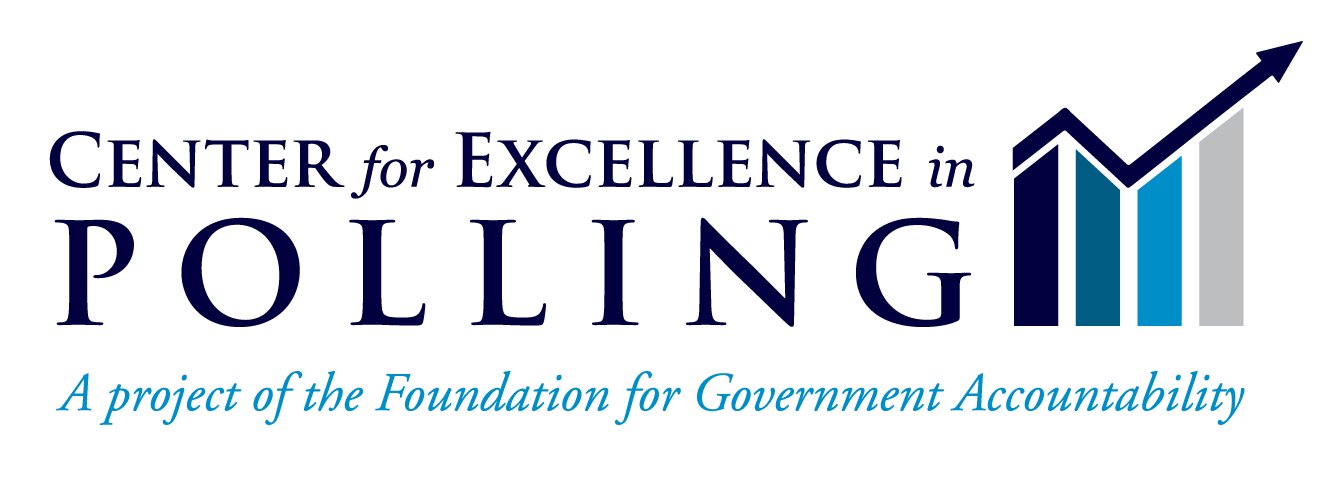Publication date: November 30th, 2023
Written by: Travis N. Taylor PHD
The Center for Excellence in Polling recently surveyed likely voters on a range of issues from inflation to immigration. Results indicate that Americans are still deeply—and universally—concerned about the rising cost of living and support commonsense policies to help solve the problem.
Americans are deeply and universally concerned about the high cost of living
Amid record levels of inflation increasing the costs of groceries and gas and rising interest rates making it more challenging for Americans to buy a home or car, voters express high levels of concern about the cost of living.
97%
of likely voters say they are very or somewhat concerned about inflation. This includes similarly high levels of Republicans (98%), Democrats, and Independents (97% each).
92%
of likely voters say they are very or somewhat concerned about current interest rates. High levels of concern about interest rates come from 94 percent of Republicans and Independents. Slightly fewer Democrats (90%) express great concern over interest rates.
A majority of voters blame government for higher costs of living. Voters consider government spending (43%) and government regulation (13%) as the leading causes of rising inflation and interest rates. Slightly more than one-third of voters blame other forces, such as corporate greed (28%) and increased wages for service workers (9%).
Meanwhile, more than one-third of voters blame President Biden or congressional Democrats (37% combined), 14 percent blame bureaucrats, and only 13 percent blame Republicans in Congress. One-quarter of voters (24%) blame everyone equally.
Relatedly, a majority of voters (53%), including 57 percent of Independents, say that Republicans have a plan to address inflation and interest rates, and believe elected Democrats deny that inflation and high interest rates are a problem. That contrasts with the 47 percent who believe that Republicans are making a bigger deal out of inflation and interest rates than they really are, a number driven almost exclusively by Democratic voters.
Voters support government reforms to rein in the cost of living
Because voters blame government spending and regulation for these dramatic increases in the cost of living, they also support commonsense reforms to reduce spending and tame regulations.
80%
of likely voters strongly or somewhat support work requirements for welfare recipients. Support for tying welfare to work comes from across the political spectrum, with 85 percent of Republicans, 79 percent of Independents, and 76 percent of Democrats in favor. Given that welfare increases are directly tied to inflation, promoting work over welfare will help end welfare dependency and decrease government spending, positively impacting the lives of every American, including those not on welfare programs.
72%
of likely voters strongly or somewhat support congressional oversight of costly bureaucratic regulations. Support for reining in the federal bureaucracy by requiring congressional approval before costly rules and regulations can be implemented comes from 80 percent of Republicans, 71 percent of Independents, and 64 percent of Democrats.
66%
of likely voters strongly or somewhat support limiting non-defense federal spending increases to one percent each year. A recent government report shows that this move would save American taxpayers $3.8 trillion over the next decade, making it popular with three-quarters of Republicans (73%), two-thirds of Independents (68%), and a majority of Democrats (58%).
Voters are concerned about the threat of terrorism at the southern border
An overwhelming majority of voters, regardless of party affiliation, are concerned with the ongoing crisis at the U.S.-Mexico border. Specifically, voters say they are very or somewhat concerned with the apprehension of individuals either on the terrorism watch list (89%) or from countries hostile toward the United States (88%).
To help curb the threats of terrorism that arise from weak border policies, three-quarters (75%) of voters say they strongly or somewhat support requiring local governments to cooperate with U.S. and state officials trying to enforce federal and state law. Nearly as many (74%) say that local and state refusal to cooperate with immigration enforcement creates a national security problem. Almost two-thirds (64%) support cutting federal funding to sanctuary cities.
The bottom line
Americans are concerned about the higher cost of living and threats of terrorism associated with a porous southern border. Voters express broad and often bipartisan support for meaningful reforms to remedy these problems. Congress would be wise to pay attention to the opportunity before them to address issues important to Americans.
